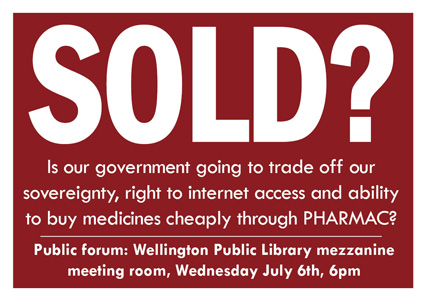This week has seen the launch of two new groups dedicated to protecting the internet in New Zealand.
Retake the Net
The first is Retake the Net, which, in their own words:
It’s increasingly clear that there are serious issues, both in New Zealand and abroad, with internet infrastructure, use, and control. Rather than simply moaning about them, the Retake the Net crew decided to start actually _doing_ something about the issues (with, of course, as much help as we can muster).
RtN’s all about fostering projects which help promote the best aspects of the net, and using new technologies to make sure people can communicate freely. We’re also about increasing the real engagement between government and citizens, and promoting New Zealand’s transition from a consumer to a producer of content and information. We realise that there’s a long way to go, but there’s no time like the present to start.
NZ Internet Freedom Collective
Then there’s the NZ Internet Freedom Collective, who are initially aiming their efforts at the new copyright law that was just passed:
Our founding purpose will be to establish a broad campaign of political, legal and social action aimed squarely at achieving the total repeal of the Copyright (Infringing File Sharing) Amendment Act 2011 and the securing of our Internet rights and freedoms in the next election.
These new groups are both looking for members, or you could consider joining one of the following:
And, of course, at Tech Liberty we’re still looking for people who want to be involved in defending our civil liberties in the digital age.
